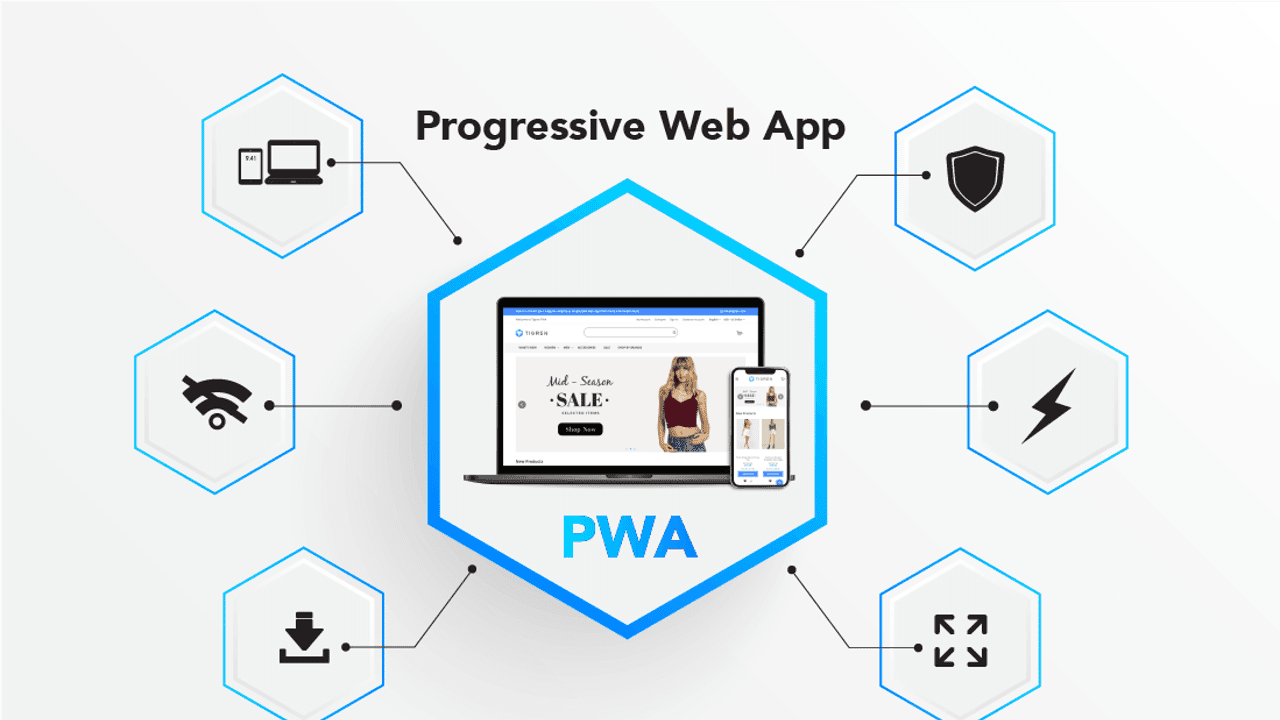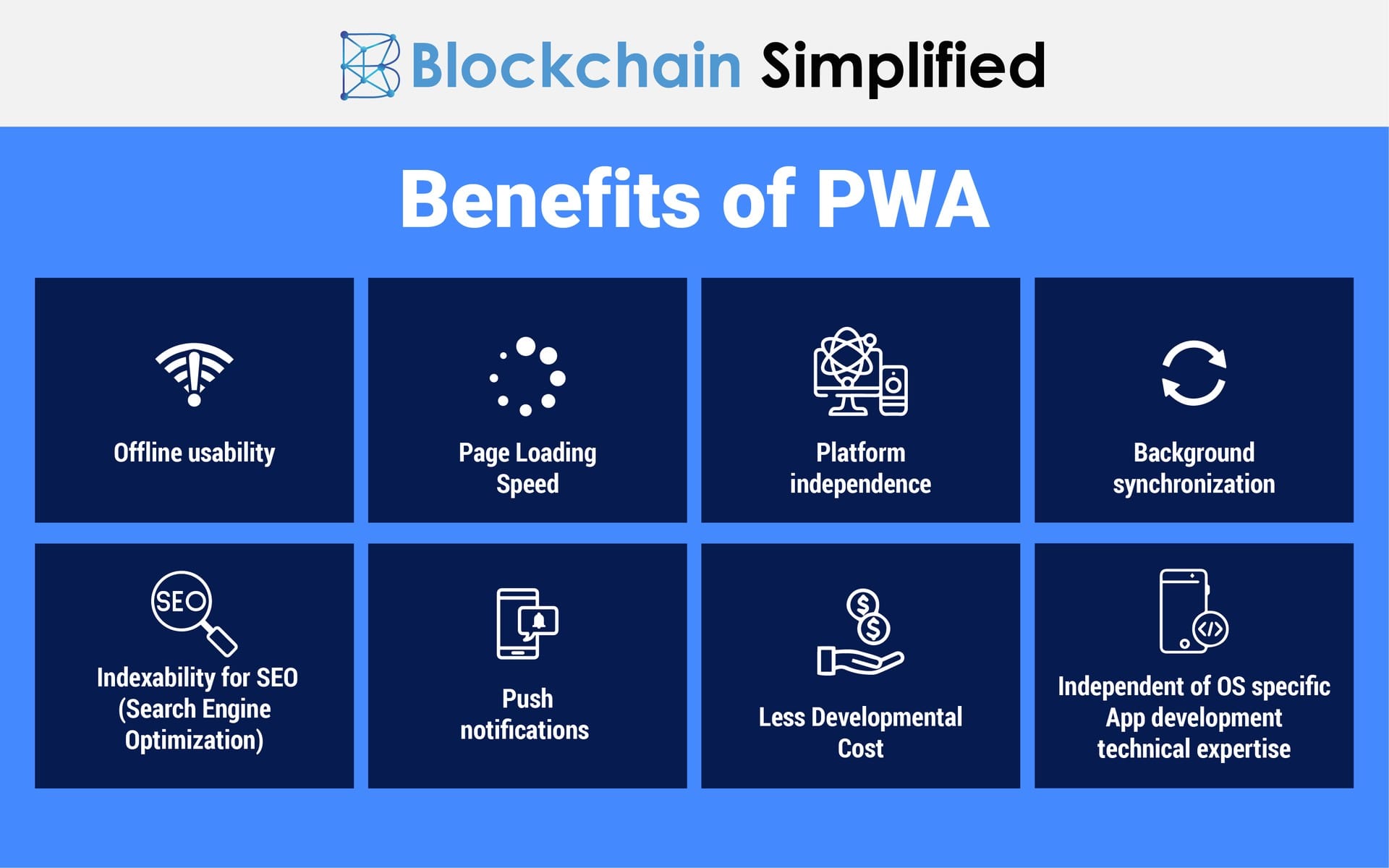Introduction:
In today’s fast-paced digital world, users demand seamless, fast, and engaging experiences across all devices. Traditional websites and native mobile apps often struggle to meet these expectations, leading to a growing interest in Progressive Web Apps (PWAs). As a web developer with over a decade of experience, I’ve witnessed the evolution of web technologies firsthand. PWAs represent a significant leap forward, combining the best of web and mobile apps to deliver exceptional user experiences. In this article, we’ll explore why PWAs are the future of web development, how they work, and why businesses should consider adopting them.
What Are Progressive Web Apps (PWAs)?
Defining PWAs
Progressive Web Apps (PWAs) are web applications that use modern web technologies to deliver app-like experiences to users. They are built using standard web technologies like HTML, CSS, and JavaScript but offer features traditionally associated with native apps, such as offline functionality, push notifications, and home screen installation.
Key Characteristics of PWAs:
Responsive: Work seamlessly on any device, from desktops to smartphones.
Reliable: Load instantly, even in low-network conditions.
Engaging: Offer features like push notifications to keep users engaged.
Why PWAs Are Gaining Popularity

The Shift Toward Mobile-First Experiences
With over 60% of global web traffic coming from mobile devices, businesses must prioritize mobile-friendly solutions. PWAs bridge the gap between websites and native apps, offering a mobile-first experience without the need for app store downloads.
Real-World Example: Twitter Lite, a PWA, saw a 65% increase in pages per session and a 75% increase in tweets sent after switching to a PWA.
Cost-Effective Development
Developing separate native apps for iOS and Android can be expensive and time-consuming. PWAs allow businesses to create a single codebase that works across all platforms, significantly reducing development and maintenance costs.
Example: A small e-commerce business saved 40% on development costs by building a PWA instead of separate native apps.
Key Benefits of PWAs
Offline Functionality
One of the standout features of PWAs is their ability to work offline or in low-network conditions. This is achieved through service workers, which cache essential resources and enable the app to function without an internet connection.
How It Helps:
Users can access content even in areas with poor connectivity.
Businesses can ensure uninterrupted service, improving user satisfaction.

Fast Loading Speeds
PWAs are designed to load instantly, even on slow networks. This is crucial for retaining users, as studies show that 53% of mobile users abandon sites that take longer than three seconds to load.
How It Helps:
Improved user experience leads to higher engagement and conversions.
Faster loading times boost SEO rankings.
Push Notifications
PWAs can send push notifications to users, just like native apps. This feature helps businesses re-engage users and drive repeat visits.
How It Helps:
Increases user retention and engagement.
Provides a direct communication channel with users.
No App Store Dependency
Unlike native apps, PWAs don’t require approval from app stores. Users can access them directly through a browser and add them to their home screens with a single click.
How It Helps:
Eliminates the hassle of app store submissions and updates.
Reduces barriers to user adoption.
Real-World Success Stories
Case Study 1: Starbucks
Starbucks launched a PWA to streamline its online ordering system. The PWA allowed users to browse the menu, customize orders, and add items to their cart—all while offline. The result? A 2x increase in daily active users and orders nearly matching those of the native app.
Case Study 2: Pinterest
Pinterest rebuilt its mobile experience as a PWA, focusing on speed and engagement. The PWA reduced time-to-interactive by 40% and increased user-generated ad revenue by 44%.
Challenges and Limitations of PWAs
Limited Access to Device Features
While PWAs can access many device features like cameras and GPS, they still lag behind native apps in terms of hardware integration.
How to Overcome It:
Use progressive enhancement to add features as browser support improves.
Leverage APIs like Web Bluetooth and Web NFC for advanced functionality.
Browser Compatibility
Not all browsers fully support PWA features, which can lead to inconsistent experiences.
How to Overcome It:
Test your PWA across multiple browsers and devices.
Use polyfills to ensure compatibility with older browsers.
My Experience with PWAs
As a web developer, I’ve built several PWAs for clients across industries, from e-commerce to education. One of my most successful projects was a PWA for a local news platform. By implementing offline functionality and push notifications, we increased user engagement by 50% and reduced bounce rates by 30%. The project reinforced my belief in the potential of PWAs to revolutionize web development.
Conclusion: Why PWAs Are the Future
Progressive Web Apps represent the future of web development by combining the best features of websites and native apps. They offer fast loading speeds, offline functionality, and engaging features like push notifications—all while being cost-effective and easy to maintain. Real-world success stories from companies like Starbucks and Pinterest demonstrate the transformative potential of PWAs. While challenges like limited hardware access and browser compatibility exist, the benefits far outweigh the drawbacks. For businesses looking to stay ahead in the digital landscape, adopting PWAs is not just an option—it’s a necessity. As technology continues to evolve, PWAs will undoubtedly play a central role in shaping the future of the web.